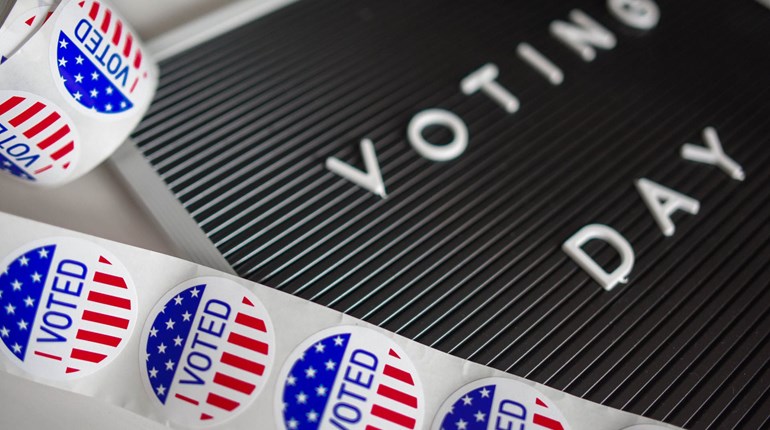
No fact-checker in America could parse his way of out of that one.
The proverb holds that when people tell you who they are, you should believe them. So it is in politics. President Biden has told us what he intends to do, and we should take his words at face value. At times during the election last year, Biden liked to cast himself as a “uniter.” But his campaign website—which he and the press mostly ignored—told a different story. The result was a peculiar split-screen, on which the candidate could be seen insisting that he was a moderate, while writers at outlets such as The Atlantic, The Washington Post, Vox and New York magazine could be heard telling us how progressive he secretly was. Now that the election is over, Biden is under no obligation to keep up the pretense.
Hence the casual announcement that he intends to “defeat” one of most-important civil-rights organizations in the United States of America.
The last time I wrote in these pages, it seemed likely that the Republicans would keep at least one of the two Georgia seats that had been sent to a runoff and that Mitch McConnell (R-Ky.) would stay as Senate Majority Leader. Alarmingly, neither has come to fruition. By a narrow margin, the Democrats picked up both Georgia seats, and, with them, a razor-thin majority in the U.S. Senate. Come Jan. 20, it will be Sen. Chuck Schumer (D-N.Y.), not Mitch McConnell, who is in charge of the upper chamber.
With the Democrats in complete control, we will see a more-radical presidential cabinet, a more-radical set of committee chairs and the introduction of a more-radical legislative agenda than we would have if the results from Georgia had been different. To those of us who hope to preserve the right to keep and bear arms, this will present a momentous challenge. And yet, despite the setback, our approach must remain the same as it would have had the U.S. Senate been composed differently. First, we must use the tools we have at our disposal to rebuff and head off the danger. And then we must vote out of office anyone—yes, anyone—who has tried to limit our rights.
More than most people within the political process, defenders of the Second Amendment know how important is the advice to “call your representative.” When Joe Biden says he will “defeat the NRA,” he is employing a cynical and underhanded euphemism. The NRA plays a worthwhile role in the American system of government, but it is a role that is wholly contingent upon the acquiescence and enthusiasm of its members and upon the integrity of the laws that they protect. By focusing on “the NRA” in the abstract, Biden can avoid making much more transparent promises, such as that he intends to “defeat the citizenry” or “defeat the Constitution” or “defeat one of the political advocacy groups that defends the U.S. Bill of Rights.” Listeners, however, should not be fooled. The NRA does not have a veto on legislation. It is not awarded a bloc of votes in the legislature. It does not sit on a council of revision. It does tell the public what politicians are planning and take a position on those plans. When Biden says that he will defeat “the NRA,” he means, in fact, that he will defeat you. In the coming months, it will be important not to forget that.
Which is where the “call your representative” part comes in. The Democrats may have achieved a trifecta in Washington, D.C., but its majorities are extremely thin in both chambers of Congress, and it has no political mandate of which to speak. In the U.S. House of Representatives, Democrats can afford to lose just 10 members on an issue before they run into a wall—10, out of 435. In the U.S. Senate, where Vice President Kamala Harris will be called upon to break 50-50 ties, the party can afford to lose only one member on any issue that requires a simple majority, and it will need to convince 10 Republicans to go along with any plans that are subject to a filibuster—which, for now, includes all non-financial legislation. The new class of Democrat senators includes two from Arizona, two from Georgia and two from Colorado. The new class of congressmen includes scores of candidates who won extremely tight races in evenly split districts, and who are keenly aware that their situation is precarious ahead of the 2022 midterms. Rarely in American history have the swing votes been more persuadable or the need to persuade them been greater.

If Biden keeps his word, we may soon see the entire laundry list of counterproductive and unconstitutional gun-control measures put up for a vote including: a prohibition of the most-commonly owned firearm type in America, a ban on standard-capacity magazines, the introduction of federal oversight over all private and familial firearms transactions and the removal of protections designed to prevent politicized litigators from putting gun manufacturers out of business. These measures will be debated out in the open, and they can be defeated out in the open. The people have pens and phones, too.

Our first task will be to remind politicians who are shaky in their support for the Second Amendment that there is nothing “extreme” about support for the right to keep and bear arms and that there is nothing sinister about its preservation. Indeed, as Biden ought to know by now, draconian restrictions on firearms, while popular with the press, do not tend to work out well for their architects. More than anything else, it was the Biden-led ban on “assault weapons” that led to the Republican sweep of Congress in November, 1994. And, in 2013, when President Barack Obama put then-Vice President Biden in charge of effecting major gun-control legislation, not only did the measure fail, but the Democrats lost control of the chamber in the subsequent election. Today, Democrats are in a weaker position in the U.S. Congress than they were back then. Does Biden’s party want to make it three in a row? If they do, they should not be able to say that they weren’t warned.
Our second task will be to keep our eyes on the ball at all times and in all circumstances—even, or perhaps especially, when it is not so obvious that there is a threat. In the next few months, the Democrats will have a chance to pass a big financial bill without risk of running up against the filibuster. This process is called “reconciliation,” and it happens just once every calendar year. Given U.S. Senate precedent—and the likely objections of Sen. Joe Manchin of West Virginia (D)—it seems improbable that any major gun-control initiatives will be included within this process.
But that does not mean that it will present no legitimate hazards. The Biden campaign has made it clear that it wishes to repeal the Dickey Amendment, so that it can spend federal tax dollars on gun-control propaganda, and, in concert, signaled its intention to bribe the states to pass restrictionist measures. Because both of these agenda items are substantively financial in nature, they could well be tucked into a massive tax-and-spending bill and passed by a simple majority. That majority must never be allowed to coalesce. There are few things more repulsive in a free country than the government using the people’s own money to limit their unalienable rights-any hint of Congress’ attempt to do so must be met with a clear and unambiguous “no.” Irrespective of who runs the government, must-pass spending bills must not become clandestine vehicles with which to quietly undermine the U.S. Bill of Rights.
In addition to watching Congress, gun owners must resolve to scrutinize every action taken by the executive branch. After Georgia, the trouble here is twofold. Because the Democrats will have a majority in the U.S. Senate, there will be less pushback against President-elect Biden’s more-extreme cabinet picks—at least two of whom, Xavier Beccerra and Vivek Murthy, have shown themselves not only to be hostile to the Second Amendment, but also open to restricting it under the guise of “public health.”

And, once those picks are seated, there will be less oversight of their behavior than there would be were the opposing party in charge of the gavel. This is going to matter a great deal, given that the pressure on President Biden to act without Congress will be enormous, and that this pressure will come not only from his own party, but from the media, Silicon Valley, Hollywood, the universities and elsewhere. In theory, Congress is supposed to be jealous of its prerogatives. In practice, however, this happens only when the government is divided. In the absence of meaningful supervision from the U.S. Senate, defenders of the right to keep and bear arms must take it upon themselves to be the watchdogs of the federal bureaucracy. They did so successfully while President Barack Obama was in office, and they can do so successfully again.
And then there is the judiciary. For the last four years, the primary threat to the Second Amendment in the courts has been its indifference to the plight of gun owners. Time after time, judges at all levels have declined to hear important cases that, if examined on their merits, would likely have led to relief. This has represented a serious problem, not least because it has allowed recalcitrant lower courts to pretend that Heller and McDonald were never decided, and, thereby, to leave in place a raft of laws and regulations that are flagrantly at odds with the U.S. Bill of Rights. But, as of Jan. 20, the danger will be greater still. As it has made repeatedly clear, the Democrat party leaders have not accepted that the Second Amendment protects an individual right, nor do they believe that its existence presents any consequential impediment to the imposition of the sweeping gun control they covet. From now until at least the 2022 midterms, we should expect all of President Biden’s judicial appointees to be hostile to the right to keep and bear arms.
For a while, such expectations will be the new normal. After the 2016 election, gun owners had a president, a U.S. House of Representatives and a U.S. Senate that respected their elementary rights. On Inauguration Day, all three will be gone, to be replaced by a president who promises to “defeat the NRA,” a U.S. House of Representatives run by Rep. Nancy Pelosi (D-Calif.), and a Senate majority leader who is vowing to “change America.” It is disgraceful that the prospects for a key provision within the U.S. Bill of Rights should be so closely tied to partisan politics, but alas, that is our present reality. In came the results from Georgia, and, suddenly, the fight was on.
The good news is that advocates of the right to keep and bear arms are accustomed to that fight—and, even better, that they are accustomed to winning that fight. Already, Biden has fallen into the bad habit of pretending that support for the Second Amendment in America is marginal. As recent history clearly shows, it is not. Indeed, after the events of the last year, gun ownership in the United States may be more widespread and more diverse than it has ever been. There is, of course, no virtue in sugarcoating our predicament: The 2020 election was a step back for the Second Amendment, and we should not pretend otherwise. But it was not a catastrophe, and it was not irrevocable. Instead, it was the ringing of a bell that marked the start of the next round. The battle is on, again. Time to step up, again.

































